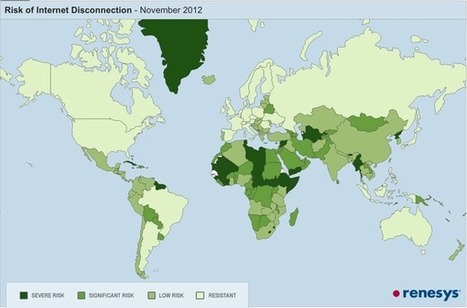The key to the Internet's survival is the Internet's decentralization — and it's not uniform across the world. In some countries, international access to data and telecommunications services is heavily regulated. There may be only one or two companies who hold official licenses to carry voice and Internet traffic to and from the outside world, and they are required by law to mediate access for everyone else.
Under those circumstances, it's almost trivial for a government to issue an order that would take down the Internet. Make a few phone calls, or turn off power in a couple of central facilities, and you've (legally) disconnected the domestic Internet from the global Internet. Of course, this level of centralization also makes it much harder for the government to defend the nation's Internet infrastructure against a determined opponent, who knows they can do a lot of damage by hitting just a few targets.
With good reason, most countries have gradually moved towards more diversity in their Internet infrastructure over the last decade. Sometimes that happens all by itself, as a side effect of economic growth and market forces, as many different companies move into the market and compete to provide the cheapest international Internet access to the citizenry.
Read more, a MUST:
http://www.renesys.com/blog/2012/11/could-it-happen-in-your-countr.shtml



 Your new post is loading...
Your new post is loading...







